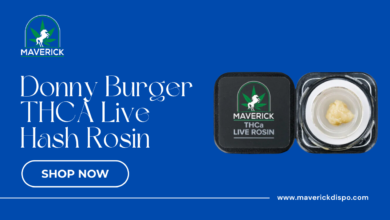
In today’s bustling marketplace, consumers are increasingly concerned about the quality and safety of the Food Certified Products they eat. With an abundance of choices lining the shelves, finding products that meet specific dietary needs or quality standards can be daunting. Fortunately, the rise of food certification programs has provided a beacon of trust for consumers seeking assurance about the products they purchase. In this article, we’ll explore the best practices for finding food-certified products, ensuring that your shopping experience is both informed and satisfying.
Understanding Food Certified Products:
Before diving into the best practices for finding Food Certified Products, it’s essential to understand what food certification entails. Food certification programs are designed to verify that products meet specific standards set forth by regulatory bodies or organizations. These standards often encompass various aspects, including quality, safety, sustainability, and ethical sourcing practices.
Common Food Certification Programs:
Several reputable food certification programs exist, each focusing on different aspects of food production and sourcing. Some of the most widely recognized certifications include:
1. USDA Organic:
Ensures that products are produced using organic farming practices without synthetic pesticides, fertilizers, or genetically modified organisms (GMOs).
2. Fair Trade Certified:
Guarantees fair prices and wages for farmers and workers, along with promoting sustainable farming practices.
3. Non-GMO Project Verified:
Certifies that products do not contain genetically modified organisms, providing transparency for consumers concerned about GMOs.
4. MSC Certified:
Indicates that seafood products come from sustainable fisheries, helping to protect ocean ecosystems.
5. Certified Gluten-Free:
Assures consumers that products are free from gluten, making them suitable for individuals with gluten sensitivities or celiac disease.
6. B Corp Certification:
Recognizes companies that meet rigorous standards for social and environmental performance, transparency, and accountability.
Now that we have an understanding of food certification programs let’s delve into the best practices for finding certified food products:
1. Research and Familiarize Yourself with Certifications:
Before heading to the grocery store, take some time to research different food certification programs and familiarize yourself with their logos and labels. This will help you identify certified products more easily while shopping.
2. Read Labels Carefully:
When browsing the aisles, be sure to read product labels carefully. Look for certification logos and seals prominently displayed on packaging. These logos serve as visual cues that the product has met specific standards and undergone rigorous testing or verification processes.
3. Utilize Online Resources:
Take advantage of online resources and databases provided by certification programs. Many organizations offer searchable databases where consumers can look up Food Certified Products by category, brand, or certification type. These resources can be invaluable tools for finding certified products that meet your preferences and dietary needs.
4. Ask Questions:
Don’t hesitate to ask questions if you’re unsure about a product’s certification status or what a particular certification entails. Grocery store staff and managers are often knowledgeable about the products they carry and can provide helpful information to assist you in making informed choices.
5. Stay Informed:
Stay updated on the latest developments and changes within the realm of food certification. As consumer preferences evolve and new certification programs emerge, staying informed will enable you to adapt your shopping habits accordingly and discover new certified products that align with your values. As consumer preferences evolve and new certification programs emerge, staying informed will enable you to adapt your shopping habits accordingly and discover new certified products that align with your values.
6. Support Transparency and Accountability:
Choose to support companies and brands that prioritize transparency and accountability in their sourcing and production processes. Look for certifications that not only ensure product quality but also promote ethical and sustainable practices throughout the supply chain.
7. Consider Your Personal Values and Dietary Needs:
Ultimately, the best certified products for you will depend on your personal values, dietary preferences, and health considerations. Whether you’re committed to supporting organic farming practices, fair trade initiatives, or gluten-free options, there are certification programs available to suit a wide range of needs and preferences.
In today’s fast-paced world, convenience often dictates our shopping habits, but it’s essential not to compromise on the quality and integrity of the products we bring into our homes. Food certification programs provide a valuable framework for maintaining standards and ensuring that the items we purchase meet specific criteria. By prioritizing certified products, consumers can support ethical and sustainable practices while enjoying peace of mind about the food they consume.
Moreover, the impact of our food choices extends beyond our own health and well-being. By opting for certified products, we contribute to broader efforts to promote environmental sustainability, social justice, and responsible business practices. Whether it’s reducing our carbon footprint, supporting small-scale farmers, or combating exploitation in the food industry, every purchase we make sends a powerful message about the kind of world we want to live in.
Food certification programs provide a valuable framework for maintaining standards and ensuring that the items we purchase meet specific criteria. By prioritizing certified products, consumers can support ethical and sustainable practices while enjoying peace of mind about the food they consume.
In essence, embracing certified food products is not just about what we put on our plates; it’s a reflection of our values and commitment to creating a better future for ourselves and generations to come. By integrating best practices for finding certified products into our shopping routines, we empower ourselves to make informed choices that align with our beliefs and contribute to positive change in the world. So, the next time you’re perusing the grocery aisles, remember the power you hold as a consumer and choose certified with confidence.
Conclusion:
In an era where consumers are increasingly conscious of the food they consume, food certification programs play a crucial role in providing transparency and assurance. By following the best practices outlined in this article, you can navigate the grocery aisles with confidence, knowing that you’re making informed choices that align with your values and preferences. Whether you’re seeking organic produce, sustainably sourced seafood, or gluten-free snacks, certified food products offer a trusted solution for conscientious consumers. Embrace the power of certification and embark on a journey towards a more informed and fulfilling shopping experience.


